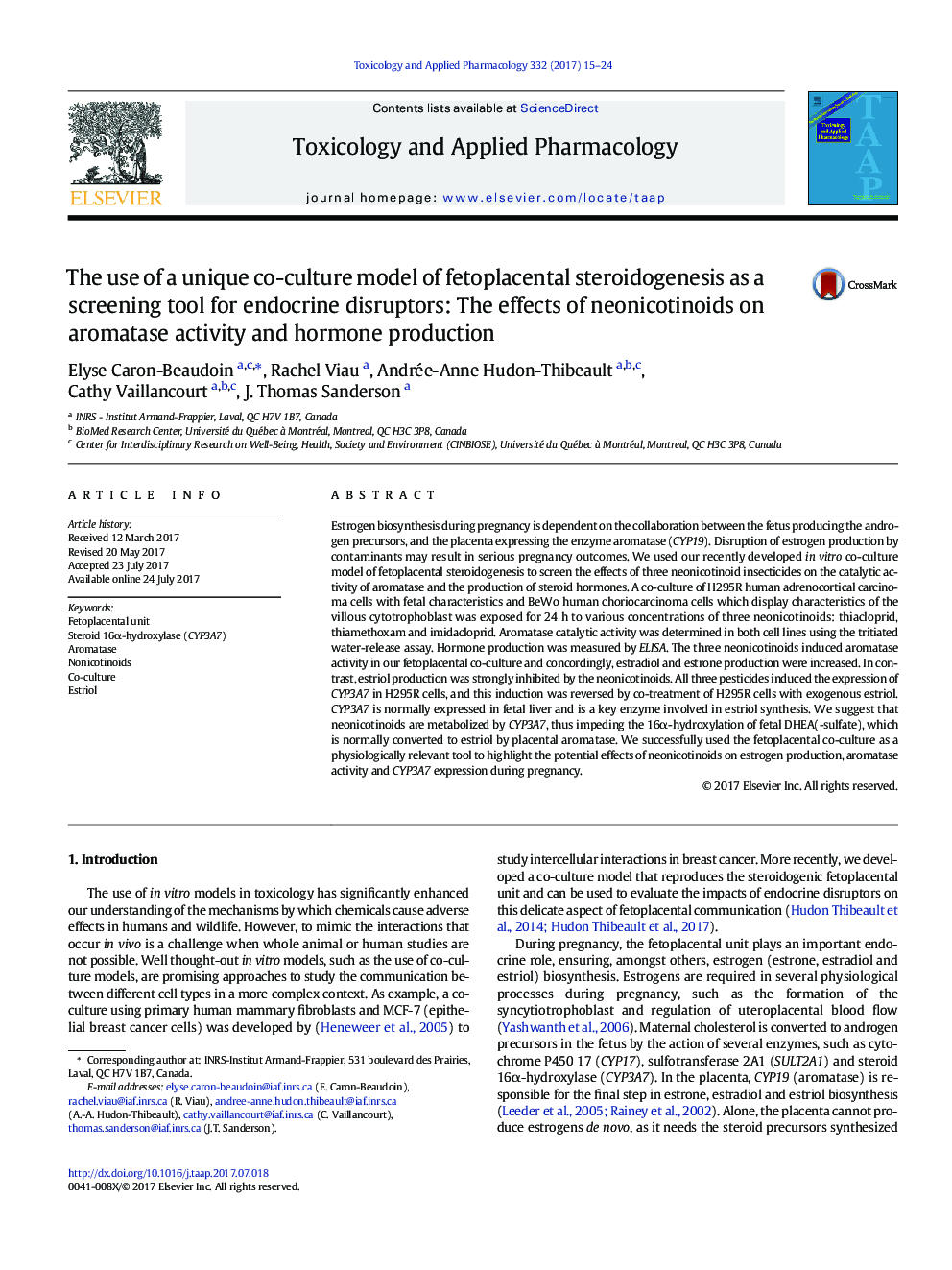| کد مقاله | کد نشریه | سال انتشار | مقاله انگلیسی | نسخه تمام متن |
|---|---|---|---|---|
| 5558387 | 1561130 | 2017 | 10 صفحه PDF | دانلود رایگان |
- A co-culture model of fetoplacental steroidogenesis was used to screen the endocrine disrupting effects of neonicotinoids.
- Three neonicotinoids induced aromatase catalytic activity in the fetoplacental co-culture.
- Aromatase induction resulted in estrone and estradiol overproduction.
- Neonicotinoids inhibited estriol production in the fetoplacental co-culture by 70-80%.
- Neonicotinoids may be metabolized by CYP3A7, thus blocking normal estriol synthesis.
Estrogen biosynthesis during pregnancy is dependent on the collaboration between the fetus producing the androgen precursors, and the placenta expressing the enzyme aromatase (CYP19). Disruption of estrogen production by contaminants may result in serious pregnancy outcomes. We used our recently developed in vitro co-culture model of fetoplacental steroidogenesis to screen the effects of three neonicotinoid insecticides on the catalytic activity of aromatase and the production of steroid hormones. A co-culture of H295R human adrenocortical carcinoma cells with fetal characteristics and BeWo human choriocarcinoma cells which display characteristics of the villous cytotrophoblast was exposed for 24 h to various concentrations of three neonicotinoids: thiacloprid, thiamethoxam and imidacloprid. Aromatase catalytic activity was determined in both cell lines using the tritiated water-release assay. Hormone production was measured by ELISA. The three neonicotinoids induced aromatase activity in our fetoplacental co-culture and concordingly, estradiol and estrone production were increased. In contrast, estriol production was strongly inhibited by the neonicotinoids. All three pesticides induced the expression of CYP3A7 in H295R cells, and this induction was reversed by co-treatment of H295R cells with exogenous estriol. CYP3A7 is normally expressed in fetal liver and is a key enzyme involved in estriol synthesis. We suggest that neonicotinoids are metabolized by CYP3A7, thus impeding the 16α-hydroxylation of fetal DHEA(-sulfate), which is normally converted to estriol by placental aromatase. We successfully used the fetoplacental co-culture as a physiologically relevant tool to highlight the potential effects of neonicotinoids on estrogen production, aromatase activity and CYP3A7 expression during pregnancy.
Journal: Toxicology and Applied Pharmacology - Volume 332, 1 October 2017, Pages 15-24
